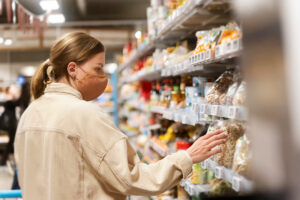BRUSSELS — The European Union (EU) has reached a provisional deal on a new law to cut packaging waste and ban single-use plastics, such as supermarket bags for fruit and mini hotel shampoo bottles in hotels, albeit with exemptions for certain sectors.
The European Commission proposed a revamp in 2022 of rules governing packaging waste, which in the EU has jumped by more than 20% in the last decade, driven by online shopping and “grab and go” consumption habits.
Each European generates almost 190 kg (419 pounds) of packaging waste per year.
Negotiators from the European Parliament and Belgium, which holds the six-month rotating EU presidency, agreed late on Monday on packaging reduction targets of 5% by 2030 and 15% by 2040 and that all packaging should be recyclable by 2030.
By then, a ban will apply to single-use plastic items such as disposable plates, cups and boxes used by fast food restaurants, shrink-wrap for suitcases at airports and lightweight bags, such as offered in markets for groceries.
There will also be a ban on “forever chemicals” (per- and polyfluorinated alkyl substances or PFASs) in food contact packaging.
The EU will also apply re-use targets, such as 10% for take-away packaging and for drinks containers, except those for wine or milk. Cardboard will also be exempt, as countries such as Finland had sought.
Negotiators agreed that empty space should make up no more than 50% of packaged goods, putting an end to oversized boxes for online deliveries.
The targets as a whole will not apply to very small businesses.
The agreement still needs approval from the European Parliament and EU governments, which is not a given in the lead-up to EU elections in June. — Reuters

